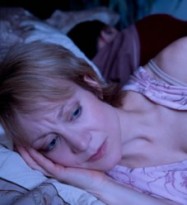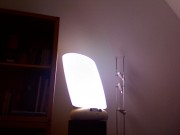Published: January 2, 2009
 Desperately seeking a good night’s sleep, insomniacs spend more money on alcohol than medical help and sleep aids combined, according to a study published today in the journal Sleep. But experts say turning to the bottle is the last thing you should do if you can’t fall asleep at night. Link to continue reading
Desperately seeking a good night’s sleep, insomniacs spend more money on alcohol than medical help and sleep aids combined, according to a study published today in the journal Sleep. But experts say turning to the bottle is the last thing you should do if you can’t fall asleep at night. Link to continue reading
Source: Scientific American
Image credit: iStockphoto
Published: November 4, 2008

light therapy lamp
With the days shortening toward winter, many people will begin to experience the winter blahs. For some, the effect can be devastating.
About 6 percent of the U.S. population suffers from seasonal affective disorder, or SAD, a sometimes-debilitating depression that begins in the fall and continues through winter. Sufferers may even find it difficult to get out of bed in the morning. [continue reading…]
Changing your behavior, rather than medication, may be the first step to a better night’s sleep. And surprisingly, for chronic insomnia, the best treatment may be to cut back on the time you spend trying to sleep.
People with insomnia often find that spending less time in bed promotes more restful sleep and helps make the bedroom a welcome sight instead of a torture chamber. As you learn to fall asleep quickly and sleep soundly, the time in bed is slowly extended until you obtain a full night’s sleep. Read More
Source: Harvard Healthbeat Extra
Published: August 14, 2007
Grandparents play important roles in life, including that of guardian, comforter, and mentor. As they get older, however, several aspects of their lives change, including their sleep patterns. While older adults need about seven to eight hours of sleep each night, many often get less sleep, which may make them more susceptible to health problems. [continue reading…]
 Desperately seeking a good night’s sleep, insomniacs spend more money on alcohol than medical help and sleep aids combined, according to a study published today in the journal Sleep. But experts say turning to the bottle is the last thing you should do if you can’t fall asleep at night. Link to continue reading
Desperately seeking a good night’s sleep, insomniacs spend more money on alcohol than medical help and sleep aids combined, according to a study published today in the journal Sleep. But experts say turning to the bottle is the last thing you should do if you can’t fall asleep at night. Link to continue reading
